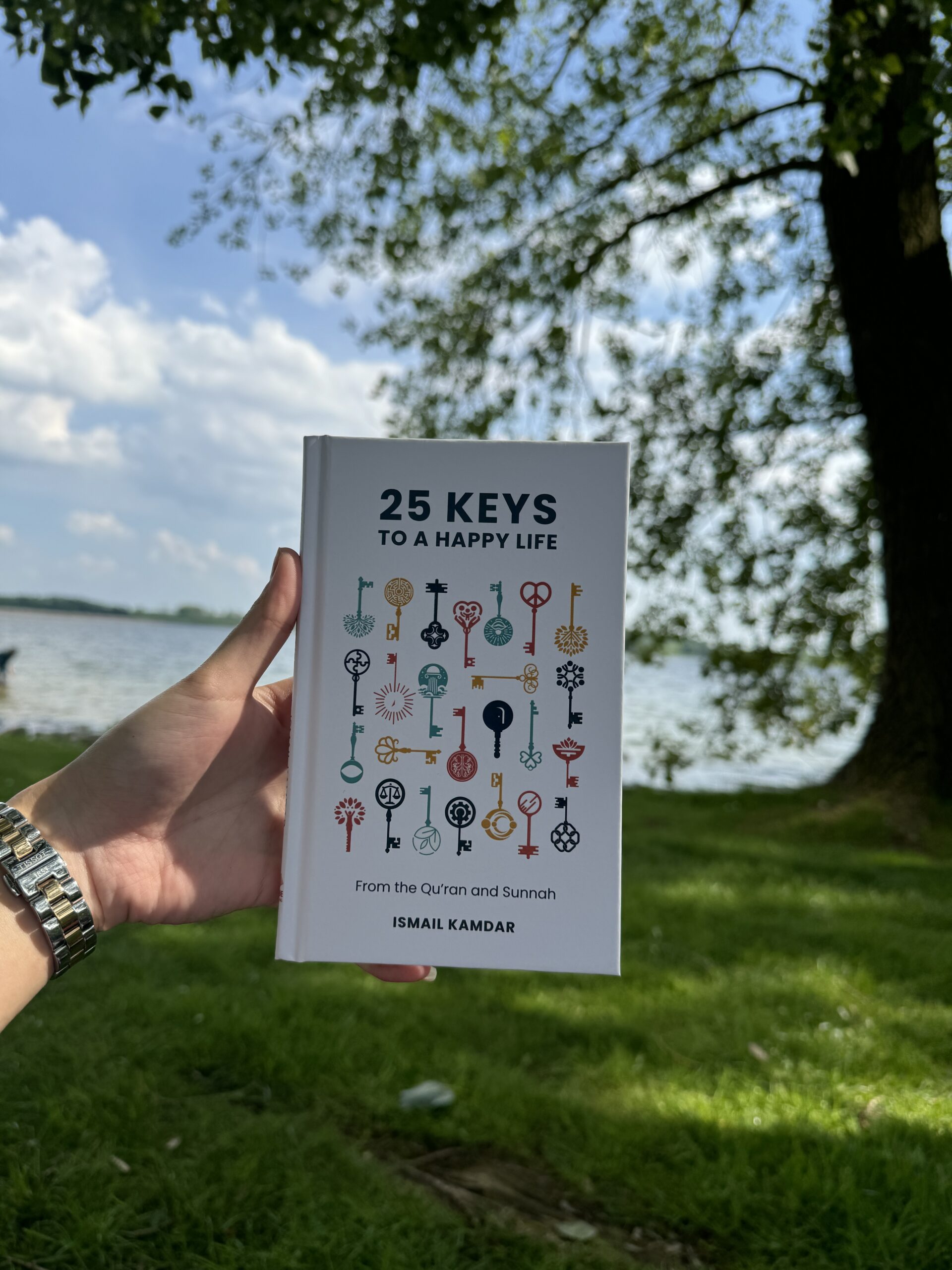In an age of consumerism, we can easily forget about the sin of greed. Greed is a disease of the heart that causes a person to disobey God in their pursuit of personal pleasure. The modern world is built on greed. People are encouraged to do whatever makes them happy, to chase their dreams, to be themselves, and to not care what anyone else thinks about them. Religion, morality and family are all cast aside for the sake of personal pleasure. This creates a society that is sick at its core. A soulless, god-less, narcissistic, greedy and hyper-individualistic society. This is the result of embracing greed and building entire philosophies (consumerism, materialism) around it.
It is important to note that Islam does not discourage us from seeking wealth or permissible pleasure, but balance and moderation is necessary. We are encouraged in Islam to have a vision, set goals, work hard, and never give up. At the same time, we are taught to be grateful for what we receive each day, be content with our destiny after making our efforts, to avoid comparing ourselves to others, and to enjoy the little things in life. I speak more about this concept in my new book 25 Key to a Happy Life.
The Qur’an and Sunnah are full of guidance and warnings about greed. The following hadiths warn us about how greed corrupts people, the types of greed that make people ungrateful, and how unsatiable greed can become. These warnings should serve as a reminder to us to check ourselves, and to practice gratitude and content, as we continue to pursuit excellence in every aspect of our lives.
Beware of Greed
قَالَ رَسُولُ اللَّهِ صَلَّى اللَّهُ عَلَيْهِ وَسَلَّمَ إِيَّاكُمْ وَالشُّحَّ فَإِنَّمَا هَلَكَ مَنْ كَانَ قَبْلَكُمْ بِالشُّحِّ أَمَرَهُمْ بِالْبُخْلِ فَبَخِلُوا وَأَمَرَهُمْ بِالْقَطِيعَةِ فَقَطَعُوا وَأَمَرَهُمْ بِالْفُجُورِ فَفَجَرُو
The Messenger of Allah ﷺ said, “Beware of greed, for it was only greed that destroyed those before you. It commanded them to be miserly and they did so. It commanded them to sever their family ties and they did so. It commanded them to behave wickedly, and they did so.”
Abu Dāwūd 1698
This hadith is a clear warning against greed. Greed is mentioned as the cause of destruction of past nations. This refers to many types of greed. Some nations were destroyed in their greed for power, others in their greed for wealth, and others in their greed for immoral lustful deeds. The warning is clear. Unrestricted desires lead to the Hellfire and to destruction in this world as well. Modern society is built on greed, and must take heed of this hadith and its message.
The hadith then explains three ways in which greed corrupts the soul and leads to evil deeds. Greed leads to stinginess, because a greedy person hates to share. Generosity is the defining characteristic of nobility in Islam, so its opposite is evil and shameful. Stinginess makes a man useless to his family and community, as stingy man does not benefit anyone besides himself. We see this today in the hyper-individualistic and narcissistic attitude of many people who are consumed by greed.
The second sin mentioned in this hadith is breaking family ties. How often are family ties broken over business disputes, inheritance disputes, and other manifestations of greed? Breaking family ties is a major sin and a means through which society is destroyed. To protect the family, we must keep greed away from our souls. The third sin mentioned is immorality. This could refer to people doing immoral deeds to earn money like prostitutes, or people being greedy for immorality like sex addicts and sexual deviants. Either way, it is destructive to society. Notice that all three results of greed mentioned in this hadith are devastating, not just to the soul, but to the family and society as well.
The Two Types Greed
قَالَ رَسُولُ اللَّهِ صَلَّى اللَّهُ عَلَيْهِ وَسَلَّمَ يَهْرَمُ ابْنُ آدَمَ وَتَشِبُّ مِنْهُ اثْنَتَانِ الْحِرْصُ عَلَى الْمَالِ وَالْحِرْصُ عَلَى الْعُمُرِ
The Messenger of Allah ﷺ said, “The son of Adam grows old but remains young in two matters: greed for wealth and greed for long life.”
Ṣaḥīḥ Muslim 1047
This hadith reminds us that greed never ends. Two things that people desire the most in this world is a long life and a lot of wealth. Neither of these are bad things in themselves. Both wealth and a long life can be blessings if used in ways that are pleasing to Allah. This hadith is not a condemnation of these desires but an observation of human nature. Human beings never give up the desire for wealth and a long life, even if they are old and wealthy.
This hadith is a reminder to us that nothing will ever be enough. Instead of worrying all the time about whether we will live long lives or be able to amass a lot of wealth, we should instead be grateful for the lives and sustenance we currently have. We should take advantage of that which is in our hands and use it in a way that is pleasing to Allah. No life is long enough, and no amount of money is ever enough for those who do not make an effort to check their greed.
Greed has no end
قَالَ رَسُولُ اللَّهِ صَلَّى اللَّهُ عَلَيْهِ وَسَلَّمَ لَوْ كَانَ لِابْنِ آدَمَ وَادِيَانِ مِنْ مَالٍ لَابْتَغَى ثَالِثًا وَلَا يَمْلَأُ جَوْفَ ابْنِ آدَمَ إِلَّا التُّرَابُ وَيَتُوبُ اللهُ عَلَى مَنْ تَابَ
The Prophet ﷺ said, “If the son of Adam had two valleys full of wealth, he would desire a third. Nothing will fill his belly but the dust of the grave, yet Allah relents to those who repent.”
Ṣaḥīḥ al-Bukhārī 6436
This hadith is a firm reminder that greed is insatiable. If you give in to any type of greed, it can consume you. There is no amount of wealth, possessions, fame, accomplishments, or sexual adventures that can satisfy the greedy soul. The only solution is to fight the greed, and replace it with gratitude and contentment. A greedy soul will consume you and take you down dark places. Greed is the root of many evils, and it is in our best interest to fight against this culture of greed and become grateful servants instead.
Purify Your Soul
Greed is a disease of the heart. The only way to fight it is to focus on purifying our souls. Tazkiya al-Nafs (purifying the soul) is an important part of Islam that every Muslim must practice daily. We must look inward and scan our souls for evil desires, then counter those desires with good deeds and good thoughts. Tazkiya al-Nafs is an ongoing struggle that Muslims must engage in every day of their lives. This is the only way to ensure the heart remains pure from diseases like hypocrisy, envy, malice, and greed. We seek Allah’s protection from all diseases of the heart.






